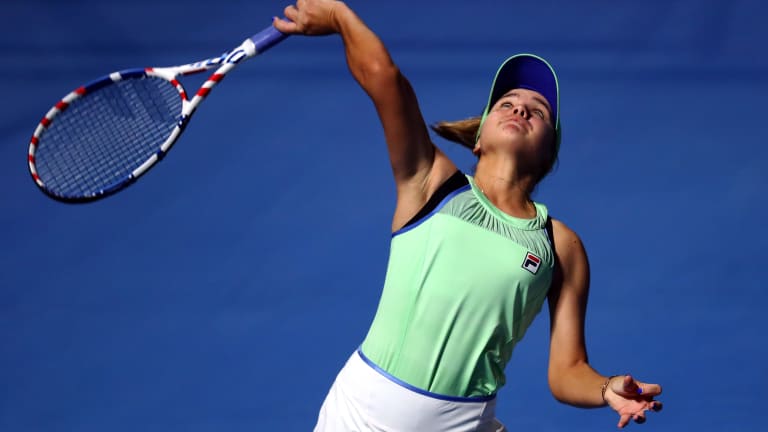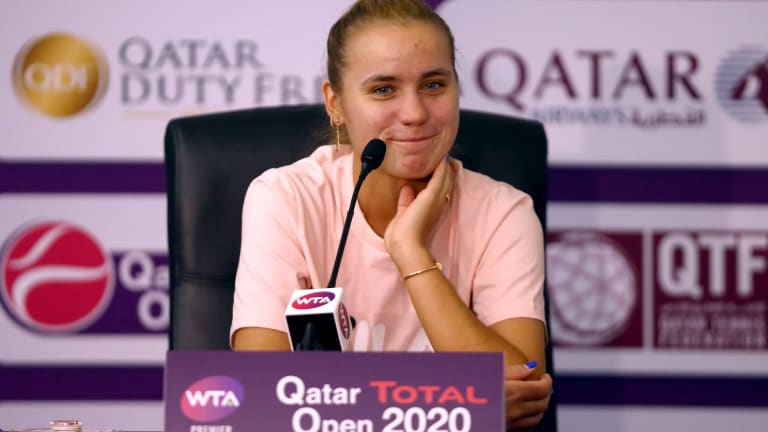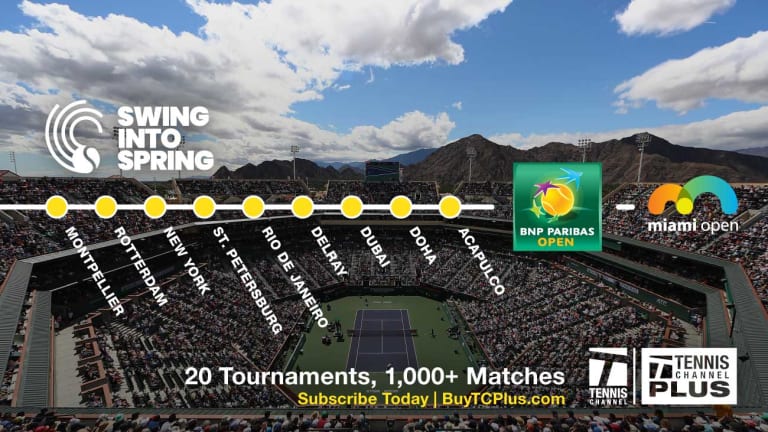Before coronavirus consumed tennis, Sofia Kenin rediscovered winning
By Mar 10, 2020Betting Central
Pick of the Day: Viktoriya Tomova vs. Sofia Kenin, Indian Wells
By Mar 07, 2024Australian Open
Iga Swiatek steels past former champion Sofia Kenin to kick off 2024 Australian Open campaign
By Jan 16, 2024What to Watch
Alcaraz gets Gasquet, Swiatek faces former champ Kenin on Australian Open Day 3
By Jan 15, 2024Beginner's Guide
How tough is Iga Swiatek’s first round? Get to know Sofia Kenin, 2020 Australian Open champion
By Jan 15, 2024WTA Adelaide, Australia
Jessica Pegula rallies in Adelaide; Elena Rybakina wins sixth straight match
By Jan 10, 2024Facts & Stats
Biggest ranking movers in 2023: Michelsen, Andreeva make biggest jumps into year-end Top 100
By Dec 07, 2023Social
Saturday Slice: Venus Williams brings back iconic braids and beads; Sofia Kenin turns 25
By Nov 18, 2023Billie Jean King Cup
U.S. beats defending BJK Cup Finals champ Switzerland, sets decisive tie with Czech Republic
By Nov 09, 2023Hana Bank Korea Open
Jelena Ostapenko ousted by 569th-ranked Back Dayeon at Hana Bank Korea Open
By Oct 10, 2023Before coronavirus consumed tennis, Sofia Kenin rediscovered winning
The 21-year-old Australian Open champion snapped out of her funk in Lyon, winning the title just before she was to play Indian Wells.
Published Mar 10, 2020
Advertising

Before coronavirus consumed tennis, Sofia Kenin rediscovered winning
© Getty Images
Advertising

Before coronavirus consumed tennis, Sofia Kenin rediscovered winning
© Getty Images
Advertising

Before coronavirus consumed tennis, Sofia Kenin rediscovered winning